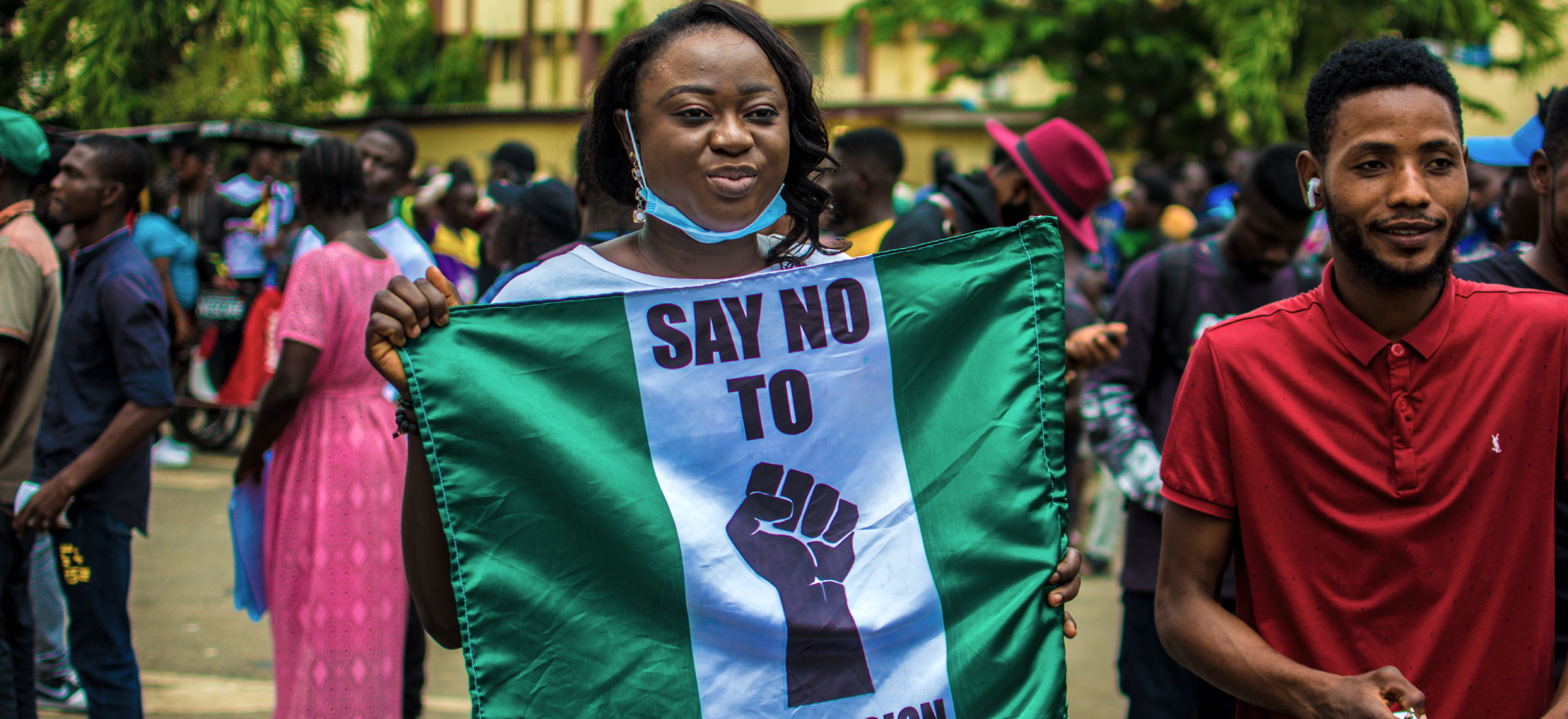Our Strategy
Although we have made our final grants under this program and are no longer accepting proposals, we welcome your thoughts on relevant issues.
Through targeted support, we aimed to bolster the momentum around Nigerian-led efforts to strengthen accountability and reduce corruption. Our multifaceted strategy had the following complementary areas of focus:
- Enabling independent Nigerian media and journalism outlets to investigate and expose corruption and share anti-corruption success stories.
- Strengthening the criminal justice system through nationwide adoption and implementation of the Administration of Criminal Justice Act and complementary laws and policies.
- Supporting Nigerian civil society organizations, communities, and social influencers to use media reports to call for action, mobilize to demand accountability, and advocate for policy changes that make it easier to prevent, detect, and punish corruption.
- Promoting behavior change by supporting faith leaders and their communities from across religious traditions to advocate for integrity within their respective religions.
- Supporting performers, creators, and influencers from across Nigeria to produce and share compelling content about corruption and the cost of corruption to Nigerian communities.
Our work and that of our grantee partners is intended to further gender equity and social inclusion as it advances the larger anti-corruption goal. When making grants and carrying out our work, we have been attentive to issues across gender, generation, geography, ability, faith, and ethnicity in the spirit of MacArthur's Just Imperative.



